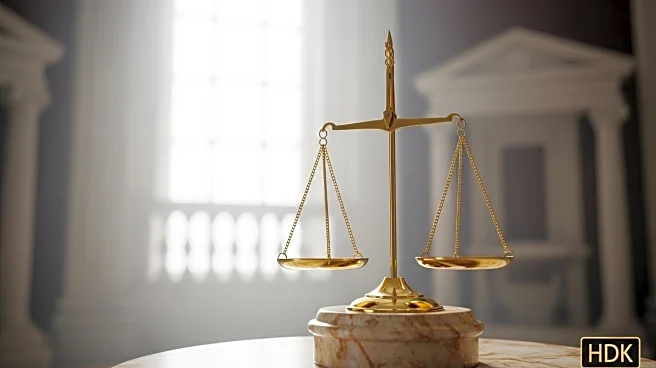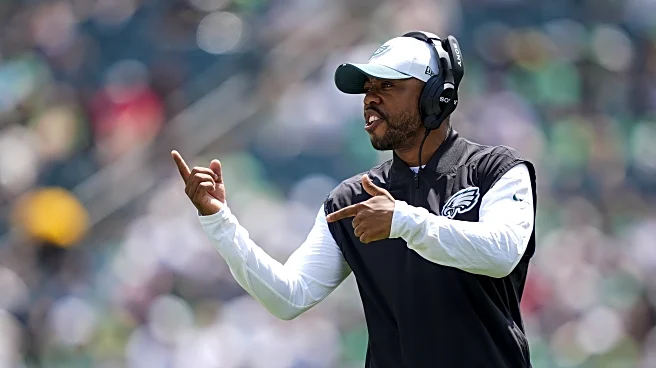What's Happening?
The Supreme Court of the United States is commencing its new term with a series of significant cases scheduled for oral arguments. The session begins with Villareal v. Texas, which questions whether a trial court violates a defendant's Sixth Amendment right to counsel by restricting communication during an overnight recess. Other notable cases include Berk v. Choy, addressing the requirement of an affidavit of merit in medical negligence cases, and Chiles v. Salazar, which challenges Colorado's ban on LGBTQ+ conversion therapy under the First Amendment. The Court will also hear Barrett v. United States, concerning the Fifth Amendment's double jeopardy clause, and Bost v. Illinois Board of Elections, which involves the legality of counting mail ballots postmarked by Election Day. The term's opening comes amid heightened political tensions and a recent poll indicating that over 40% of Americans view the Court as too conservative.
Why It's Important?
The Supreme Court's decisions in these cases could have far-reaching implications for U.S. law and society. The outcomes may affect legal standards for defendants' rights, medical negligence claims, and the regulation of controversial practices like conversion therapy. The Court's rulings could also influence election laws and the interpretation of constitutional protections against double jeopardy. With a 6-3 conservative majority, the Court's direction on these issues is closely watched, especially as public perception of its ideological leanings grows more critical. These cases will test the balance between state regulations and individual rights, potentially setting precedents that impact future legal interpretations and public policy.
What's Next?
The Supreme Court will continue to hear oral arguments through the spring, with decisions expected to follow. Stakeholders, including legal advocacy groups and state governments, are likely to respond to the Court's rulings, which could prompt further legal challenges or legislative actions. The outcomes may also influence public opinion and political discourse, particularly in areas related to civil rights and electoral processes. Observers will be keenly watching how the Court navigates these complex issues amid a politically charged environment.
Beyond the Headlines
The cases before the Supreme Court this term highlight ongoing debates about the role of government in regulating personal freedoms and professional standards. The decisions could redefine the boundaries of state intervention in healthcare and personal counseling, as well as clarify the legal standing of various plaintiffs in challenging state laws. These developments may also reflect broader cultural shifts and the evolving landscape of American jurisprudence, as the Court's interpretations of constitutional rights continue to shape societal norms.









